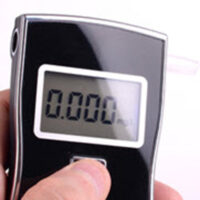Four Ways to Beat the Breathalyzer in a Florida DUI

The Breathalyzer is perhaps the most powerful technological tool in a DUI. The conviction rate is about twice as high in test cases as in non-test cases. Many people assume that Breathalyzer results are bulletproof in court. However, today’s Breathalyzer is nothing but an updated version of the Drunk-O-Meter from the 1920s. As such, this gadget has a number of serious flaws.
To highlight these issues to jurors, a Tampa DUI attorney often partners with degreed chemists, or at least chemistry graduate students. These individuals provide expert testimony which is usually more compelling than the testimony from Breathalyzer technicians. Generally, these people learned almost everything they know about this gadget at a brief, police-sponsored seminar. Additionally, these defense experts usually testify because of their passion about the subject, not because the court forces them to do so.
Calibration
Breathalyzer techs sing the praises of these gadgets to jurors, pointing out all the advanced features, bells and whistles. But a Breathalyzer is like any other machine. The more moving parts it has, the more likely it is to break down. So, officers must frequently calibrate Breathalyzers. Many newer Breathalyzers require calibration almost daily, especially if they are used frequently.
On a related note, not all Breathalyzers are alike, just like not all smartphones are alike. You may be very good at operating an iPhone, but know almost nothing about an Android. Similarly, many police officers are highly qualified to operate certain Breathalyzers, but they know almost nothing about other models. If the officer recently transferred from another jurisdiction, there’s a good chance operational skills might be an issue.
Unabsorbed Alcohol
Normally, liquid travels from the stomach to the blood. Alcohol, however, goes from the stomach to the liver to the blood. The extra step might take several hours in many cases. So, if the defendant has been drinking during that time period, the alcohol will show up in a breath test, but it is not yet in the bloodstream. In other words, the Breathalyzer’s BAC estimate could be artificially high.
Temperature Changes
Tampa Bay is not known for its extreme weather. Nevertheless, we have our share of heat waves and cold snaps. Breathalyzers must be calibrated to account for the outside temperature. Calibration is not limited to the moving parts in the gadget. Body temperature could be an issue as well. A fever of as little as a half-degree could affect the BAC estimate by as much as .01 or even .02. Therefore, temperature changes, and all these other issues, are especially relevant in borderline BAC cases.
Mouth Alcohol
If the defendant burps, belches, or vomits prior to the test, alcohol particles from the stomach gush into the mouth. Once again, the BAC estimate could be artificially high.
Florida law technically requires officers to monitor defendants for fifteen minutes before a test, to ensure sample integrity. But courts have diluted this requirement significantly. Officers do not even need to be in the same room as defendants for the entire period. So, prosecutors are hard-pressed to establish breath sample integrity beyond a reasonable doubt.
Reach Out to a Dedicated Attorney
If you blew into a Breathalyzer, you are not automatically guilty. For a free consultation with an experienced criminal defense lawyer in Tampa, contact the OA Law Firm. We routinely handle matters in Hillsborough County and nearby jurisdictions.
Resource:
nhtsa.gov/people/injury/research/dwiconviction/dwiconvictions.htm




